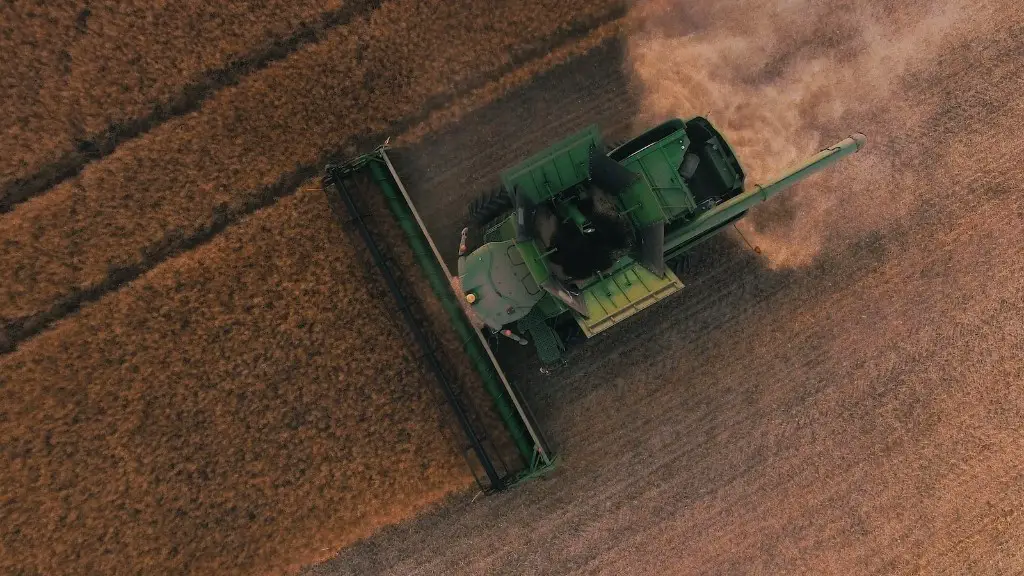Agricultural certification is a process of verifying that a product, service, or facility adheres to certain standards and guidelines. Farmers, ranchers, producers, processors, and handlers in the food industry are expected to meet certain standards of production, safety, and sustainability. Certification requires the farmers, producers, and handlers to demonstrate that they are capable of producing and delivering safe, quality products to the customer. Certifications provide a third-party assurance that a product, service, or facility meets the specified standards. This also helps customers understand the quality and safety of the food they’re buying, and it encourages farmers and ranchers to adopt the best practices and promote the sustainability of agricultural production.
One example of an agricultural certification is the Good Agricultural Practices (GAP). GAP is a food safety standard, developed by the United Nations Food and Agriculture Organization, which ensures that the produce is produced, packed, handled, and stored safely, following established best practices. It’s designed to minimize the risks of food contamination and foodborne illnesses associated with products produced through Good Agricultural Practices. The U.S. Department of Agriculture has implemented the GAP certification process for produce, meat, and poultry, and it provides incentives for certified farms and processors.
Organic certification is another type of agricultural certification. Organic certification is a process that guarantees the production and handling of organic food and agricultural products meet specific standards of sustainability and environmental stewardship. The standards for organic certification are set by the US Department of Agriculture and enforced through the Organic Materials Review Institute. Organic certification requires products to be grown and processed without the use of synthetic pesticides, genetically modified organisms, and anti-microbial treatments. It also requires organic operations to use renewable resources, conserve soil and water resources, and provide humane and responsible animal welfare practices.
Agricultural certification can also involve certification of agricultural machinery and equipment. This requires machinery and equipment to meet certain standards of performance, safety, and sustainability. Manufacturers of agricultural machinery and equipment must prove that their products will be used in accordance with established safety protocols and practices. Certification also involves the safety and performance testing of agricultural machinery and equipment.
Certifications can be voluntary or required. Voluntary certifications typically focus on sustainability issues, such as organic certification, whereas required certifications focus on food safety, such as Good Agricultural Practices certification. Certification processes are typically administered by third-party agencies, such as the USDA, International Organization for Standardization, or Ministry of Agriculture. It’s important for farmers, producers, and handlers to be aware of certification requirements, process standards, and certifying agencies in their region.
Organic Certification Standards
Organic certification is a process that provides customers with a guarantee that a product is truly organic according to the standards established by the U.S. Department of Agriculture. These standards include the use of materials derived from natural and renewable sources, with no synthetic fertilizers, sewage sludge, irradiation, antibiotics, or genetic engineering. Additionally, organic products must not involve the use of genetically modified organisms, bioengineering, or ionizing radiation. Organic certification also involves the use of soil- and water-conserving practices, such as crop rotation and composting.
Organic certification also focuses on animal husbandry and animal welfare. Certification requires that organic livestock is raised pesticide- and hormone-free and is given access to the outdoors, year-round grazing, and organic feed. Organic certification also requires the use of renewable resources, such as sustainable energy sources and natural pest control.
Organic certification is necessary for the sale and marketing of organic products. This certification provides customers with assurance that products are truly organic and provides farmers, producers, and handlers with incentives to adopt the best practices and promote sustainability. Additionally, organic certification can provide farmers and producers with access to markets and communities that prioritize organic products.
Good Agricultural Practices
Good Agricultural Practices (GAP) is an internationally-recognized food safety standard, developed by the World Health Organization and the United Nations Food and Agriculture Organization. This certification requires that produce is produced, packed, handled, and stored according to established best practices, designed to minimize the risks of food contamination and foodborne illnesses. To receive GAP certification, a farm, manufacturer, processor, and handler must demonstrate that they comply with the standards outlined in GAP.
GAP certification is designed to yield safe, high-quality products by emphasizing the production and handling of commodities following safe practices. It requires that produce is harvested, handled, and stored using sanitary and hygienic practices. It also requires that the use of fertilizers, fungicides, and other materials do not exceed established standards, and that post-harvest handling protects food safety and quality.
GAP certification is administered by third-party agencies and is becoming increasingly important as countries look to reduce food safety risks. It also provides incentives for certified farms and processors, and can help customers identify safe, high-quality products.
Certification of Agricultural Machinery
Certification of agricultural machinery and equipment is another form of agricultural certification that focuses on performance, safety, and sustainability. This certification verifies that the machinery and equipment meets certain standards of safety and performance, and that it is operated, maintained, and stored in accordance with established standards. Certification of machinery and equipment also involves safety testing, as well as training and certification of operators.
Certification of machinery and equipment also helps ensure that agricultural machinery and equipment is operated safely and efficiently. It also encourages manufacturers to design, produce, and market machinery and equipment that meets agreed-upon standards and guidelines. Additionally, certification helps farmers and ranchers to better maintain and operate their machinery and equipment and to use it in accordance with established best practices.
Certification of agricultural machinery and equipment can also help protect against safety risks and accidents, by ensuring that the machinery and equipment is used in accordance with established safety protocols and practices. This can in turn help to reduce costly repairs and downtime, improve production efficiency, and maintain the safety of workers and the environment.
Certification Process
The process of agricultural certification involves a third-party verification that a product, service, or facility meets a certain standard. This process involves submitting an application to the certifying agency and providing evidence that the requirements of the standard are met. The certifying agency will then review the application and may conduct an on-site inspection to verify that the requirements have been met. Once the certification is approved, the agricultural operation will receive a certificate.
The certification process can be complex, and it’s important for agricultural operations to ensure that they have the proper documentation and materials ready before starting the process. The certifying agency may also require additional documentation or evidence during the process. Once the certification is approved, the operation must adhere to the standards set by the certifying agency in order to maintain the certification.
Agricultural certification is an important process that helps to ensure that products, services, and facilities meet established standards and guidelines. It helps to provide customers with assurances of quality and safety and encourages farmers, producers, and handlers to adopt the best practices and promote the sustainability of agricultural production.




